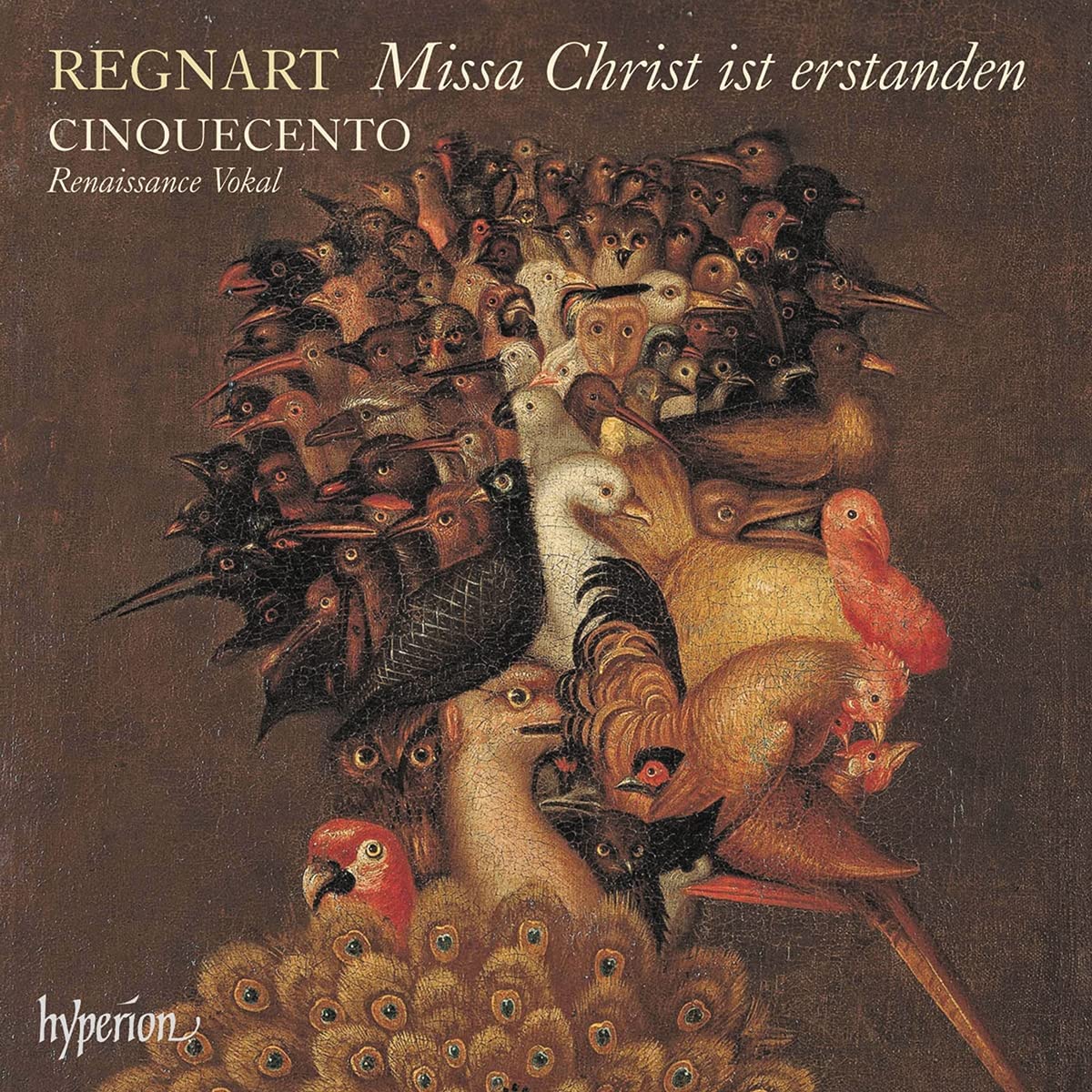Cinquecento Renaissance Vokal
64:45
hyperion CDA68369
Click HERE to buy this recording on amazon.co.uk
[These sponsored links support the artists and the record company, and help the site remain alive and FREE!]
Having been poleaxed by the way Cinquecento’s excellent singing complemented the excellence of Isaac’s music on their previous release but having been less impressed by their previous disc of Regnart (2007), I approached this recording with circumspection. None required. Like the former, it is another superb recording of revelatory music. Regnart’s praises were being sung over four hundred years ago by none other than Lassus. Like the rest of us, the greatest creative artists can reveal lousy taste, or speak up for an untalented friend, or favour someone inferior to make themselves seem even better, but Lassus, about ten years Regnart’s senior, was bang on the money when he came to recommending him for advancement.
The two masses that take up most of this programme are best heard after the little hymn tunes on which they are based. In both cases, Regnart’s varied treatment of the tunes within his masses makes for two outstanding compositions; listening to them is spiritually rewarding and an aesthetic pleasure. This is well exemplified in the Gloria of Missa Christ ist erstanden. There is some fine sequential writing approaching the movement’s first close at “Patris”, followed by a well-judged slowing of tempo to a sumptuous cadence on “miserere nostri”, and an extended Amen brings the movement to a close with another gorgeous cadence. There are fine moments in other movements, with an excellent passage for three of the five voices in the Credo at “et iterum …”, and another striking cadence in the Sanctus at “tua”. Missa Freu dich is no less distinguished. The Credo is notable for some animated syncopation in the “Crucifixus” section, with further rhythmic vitality approaching the end of the movement. The Sanctus ends with a climactically high note on the last word “tua” for the countertenor. Perhaps most to be relished is the Agnus, with exciting dissonance at “peccata mundi” and a lovely cadence on “nostri”, repeated, to round off the entire disc, on “pacem”.
The three fillers are well chosen. Maria fein, du klarer Schein is a beautiful sacred song in five parts, while the other two works are later contrafacta of what were originally “light Italian love songs” according to the excellent notes by Erika Supria Honisch. She informs us that Ruhmbt alle Werck was originally “Vorrei saper da voi”. For those who are interested, the original of Wann ich nur dich hab was “Tutto lo giorno”, 1574.
This is a disc of glorious polyphony, especially memorable for its undulating phrases, sung superbly by Cinquecento, with not only a feeling of bracing air between the individual parts, but also, where appropriate, concentrated warmth during deeper sonorities.
Richard Turbet
